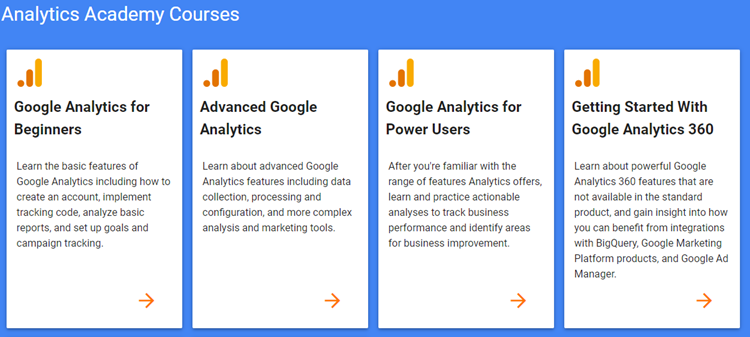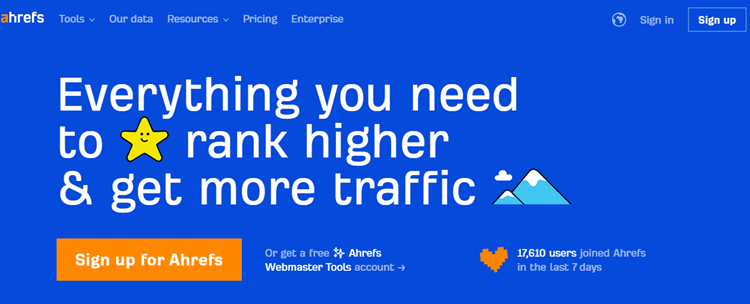As a professional copywriting journalist, I know the importance of optimizing a website to improve its visibility on search engines. However, for beginners, it can be challenging to figure out where to start. That’s why I am here to share my insights on the best SEO tools for beginners.
With so many SEO tools available in the market, it can be overwhelming to choose the perfect one. But don’t worry, I have got your back. After extensive research and analysis, I have compiled a list of free SEO tools that are perfect for beginners like you.
One of the most important things to keep in mind while selecting an SEO tool is that it should be accessible and easy to use. You don’t want to end up with a tool that is too complicated or requires extensive technical knowledge. The tool should provide you with actionable insights and recommendations that can help you optimize your website for search engines.
So, without any further ado, let’s dive into the best SEO tools that every beginner should use to improve their website’s search engine ranking.
Post Contents
5 Best SEO Tools for a Beginner
In the dynamic world of digital marketing, the quintessence of success often lies in the adept use of SEO tools. For beginners navigating this complex terrain, selecting the right tools can be as bewildering as deciphering a cryptic code. This article delves into the top five SEO tools that are not only user-friendly for beginners but are also robust in their functionality.
1. Google Analytics: A Gateway to Understanding Web Traffic

Google Analytics stands as an indispensable SEO tool for a beginner in the realm of SEO. Its capacity to meticulously track and analyze website traffic offers invaluable insights. Beginners can leverage this tool to understand user behaviour, traffic sources, and engagement metrics. The beauty of Google Analytics lies in its depth – offering both a high-level overview and granular data. It becomes the lighthouse guiding the strategic decisions for website optimization.
2. Yoast SEO: Mastering On-Page Optimization

Primarily a WordPress plugin, Yoast SEO simplifies the intricacies of on-page optimization. With its intuitive interface, it assists beginners in enhancing their content readability, managing keywords, and ensuring that meta tags are optimally utilized. Yoast SEO’s traffic light system, indicating the SEO health of your content, is a particular boon for novices. It transforms the otherwise arcane process of SEO into a more approachable and manageable task.
3. SEMrush: Competitor Analysis and Keyword Research

Diving deeper into the SEO arsenal, SEMrush emerges as a multifaceted tool. It excels in providing comprehensive competitor analysis and detailed keyword research capabilities. Beginners can utilize SEMrush to uncover the keywords their competitors are ranking for and identify gaps in their strategies. Additionally, its features encompassing backlink analysis and site audits are instrumental in crafting a well-rounded SEO strategy.
4. Moz Pro: A Holistic SEO Toolkit

Moz Pro is renowned for its extensive suite of SEO tools. It’s particularly beneficial for beginners due to its user-friendly interface and the Moz community’s supportive nature. The tool’s keyword explorer, free link explorer, and free site audits are pivotal in understanding both on-page and off-page SEO elements. Moz Pro also provides insightful recommendations for improving website rankings and visibility.
5. Ahrefs: Backlink Analysis and More

Lastly, Ahrefs is a tool revered by many SEO professionals. Its backlink analysis tool is arguably one of the best in the market. For beginners, understanding the landscape of backlinks which are integral to SEO success becomes significantly simpler with Ahrefs. Furthermore, its features for keyword research, content exploration, and rank tracking are top-notch, providing a comprehensive view of SEO performance.
SEO Listing Strategies for Beginners
Search engine optimization (SEO) is a complex and ever-evolving industry, but even beginner-level strategies can make a difference in boosting website visibility. One of the critical aspects of SEO is optimizing SEO listings, which refers to how well your website appears in search engine results pages (SERPs).
What are SEO Listings?
SEO listings are the search results that appear on SERPs when users query a search engine. Optimizing your SEO listings involves improving the snippet of text that appears beneath the URL. This snippet should accurately describe the web page’s content and encourage users to click through to your website.
Also Read: How Long Does It Take To Learn SEO?
Why are SEO Listings Important?
Effective SEO listings are crucial because they play a role in driving organic traffic to your website. If your listings are compelling and accurately describe your content, users are more likely to click through and engage with your website. Additionally, optimizing your listings can improve your search engine rankings, making it easier for users to find your website in the first place.
Optimizing SEO Listings: Best Practices
There are several best practices to keep in mind when optimizing your SEO listings:
- Use relevant keywords: Include relevant keywords in your listings to ensure they accurately reflect the content of your website.
- Write compelling titles and descriptions: Your title and description should be attention-grabbing and accurately reflect the content of your website.
- Avoid duplicate content: Duplicate content can harm your website’s visibility and rankings, so make sure each listing is unique.
- Include a specific call-to-action: Encourage users to click through to your website by including a clear call-to-action in your listings.
- Keep listings up-to-date: Make sure your listings are up-to-date and accurately reflect the content of your website.
By following these best practices, you can create effective SEO listings that drive organic traffic to your website and improve your search engine rankings.
Do you know: Is Godaddy SEO Worth It?
Optimizing your SEO listings can seem daunting, but by incorporating these best practices, you can make a significant impact on your website’s visibility and search engine rankings. Remember, SEO is a continual process, so be sure to keep your listings up-to-date and continually monitor your website’s performance to stay ahead of the competition.
FAQ (Best SEO Tools for a Beginner)
Which SEO tools are best for a beginner?
Several SEO tools are great for beginners to optimize their websites and improve visibility on search engines. Some popular options include Google Analytics, Google Search Console, Yoast SEO plugin for WordPress, and Moz’s Keyword Explorer.
What are SEO listings and why are they important?
SEO listings refer to the optimization of your website’s content, meta tags, and headings to improve its visibility on search engines. They are important because they help search engines understand what your website is about, leading to better rankings and more organic traffic.
What are the best practices for creating effective SEO listings?
To create effective SEO listings, you should focus on using relevant keywords in your content, meta tags, and headings. Ensure your website has clear and concise titles, meta descriptions, and headings that accurately describe the content. Optimizing images with alt text and improving website speed can also enhance your SEO listings.

